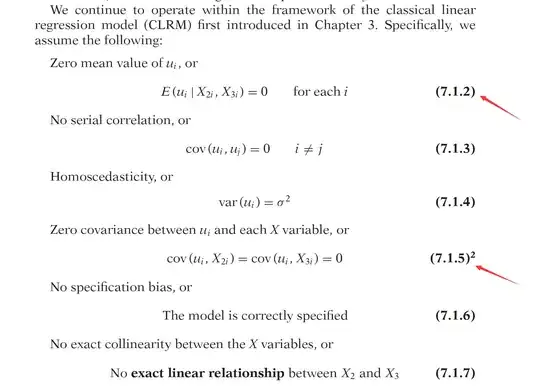Suppose in econometrics, $$ y = \beta_{0} + \beta_{1}x_{1} + \beta_{2}x_{2} + ... + \beta_{k}x_{k} + u$$ In Gujarati's book, it says that the following equation (1) $$ E[u | x_{1}, x_{2},..., x_{k}] = E[u] = 0 \tag{1}$$ given that $$ x_{1}, x_{2},..., x_{k}$$are independent from each other implies (with bilinearity property of covariance) $$ Cov(u, x_{1} + x_{2} + ... +x_{k}) = cov(u, x_{1}) = cov(u, x_{2}) = ... = cov(u,x_{k}) = 0$$ How can we derive this result?
Thank you very much.

